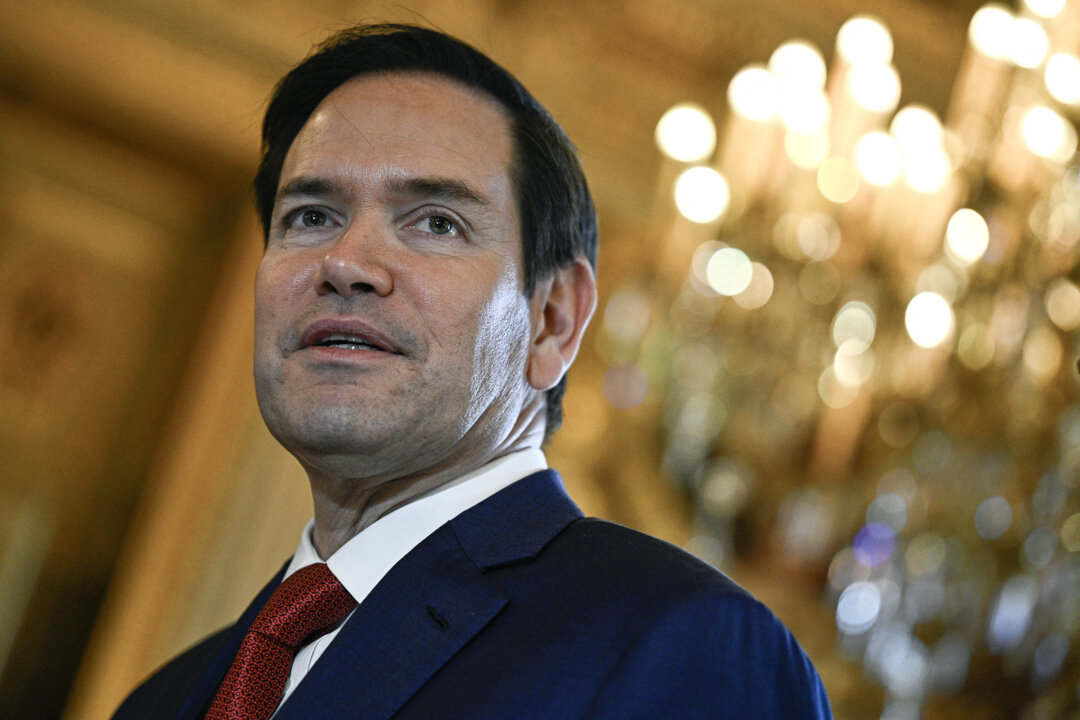Trump hopes to avoid war with Iran, the secretary of state said, but is determined to prevent Tehran from getting nuclear weapons.
Secretary of State Marco Rubio said on April 23 that President Donald Trump remains committed to preventing Iran from acquiring a nuclear weapon, but would prefer to do so through diplomacy rather than military action.
Speaking in an interview with The Free Press, Rubio said the United States is willing to support Iran’s right to a civilian nuclear energy program, so long as it gives up domestic uranium enrichment—a process that can be used to produce weapons-grade material.
“If Iran wants a civil nuclear program, they can have one, just like many other countries in the world have one, meaning they can import enriched material,” Rubio said. “But if they insist on enriching uranium themselves, then they will be the only country in the world that ‘doesn’t have a weapons program’ but is enriching. I think that’s problematic.”
Rubio said that the United States is not seeking armed conflict with Tehran but that Trump “reserves every right” to act militarily if diplomacy fails.
“We do not want to see war. This is not a president that campaigned on starting wars,“ Rubio said. ”And as he said very clearly, Iran is not going to have a nuclear weapon and he reserves every right to prevent that from happening, but he would prefer it not happen. He would prefer that there not be a need to resort to military force.”
Iranian officials have shown a willingness to talk, Rubio said, adding that the United States is going to give a peaceful resolution “every opportunity to succeed.”
Rubio’s remarks come amid the strongest push in years for a new nuclear agreement between Washington and Tehran. Two recent rounds of talks—in Oman and Italy—have laid the groundwork for a possible framework deal. A third round is scheduled for April 26, with technical experts meeting in the meantime to hash out key provisions.
Preventing Iran from developing a nuclear bomb has been a cornerstone of Trump’s foreign policy. The president unilaterally withdrew from the Obama-era Joint Comprehensive Plan of Action in 2018, calling it “one of the worst and most one-sided transactions” ever negotiated by the United States. Since being elected for a second term, Trump has imposed sweeping sanctions on Tehran and reinstated a “maximum pressure” campaign to deny Iran all paths to a nuclear weapon and bring the regime to the negotiating table.
“If they don’t make a deal,” Trump warned in a March 30 social media post, “there will be bombing, and it will be bombing the likes of which they have never seen before.”
Iran has consistently said its nuclear program is for peaceful purposes. However, international inspectors have said Tehran is enriching uranium at near weapons-grade levels and may be just months away from accumulating enough material for multiple nuclear warheads.
Some signs of cooperation have emerged as well. Rafael Grossi, head of the International Atomic Energy Agency (IAEA), said on April 23 that Iran had agreed to let technical teams return to nuclear sites to discuss restoring surveillance systems, with Grossi describing the move as encouraging.
Iranian Supreme Leader Ali Khamenei said on April 15 that he was “neither overly optimistic nor pessimistic” about the talks, while Iranian Foreign Minister Abbas Araghchi described the negotiations as “constructive” and ongoing.
Despite the progress, Rubio cautioned that Tehran’s intentions remain uncertain.
“I don’t even know if Iran knows how to make a deal,” he told The Free Press. “They’ve got their own internal political dynamics in their country they have to work through.”
Still, it’s important to engage in talks, he said.
“If there is a chance of peace, we’re going to give peace and a peaceful resolution to this challenge every opportunity to succeed,” Rubio said. “I don’t want to see a war. The president certainly doesn’t want to see one either.”

